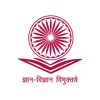Anil Rana: Steering MIT Manipal Towards Global Excellence and Innovation
Established in 1957, the Manipal Institute of Technology (MIT) stands as one of India’s premier engineering institutions and a proud constituent of the Manipal Academy of Higher Education (MAHE). Over the decades, MIT has earned a distinguished reputation for academic excellence, cutting-edge research, and a vibrant campus life that nurtures holistic development.
At the heart of Manipal’s transformative spirit, where tradition meets innovation, stands Dr (Cdr) Anil Rana, the dynamic Director of MIT. A visionary leader, Dr Rana combines global experience, institutional insight, and a steadfast commitment to student-centric education. His mission is to shape MIT into a future-ready institute that excels in engineering education, interdisciplinary research, holistic development, and global engagement.
A former officer in the Indian Navy, Dr Rana transitioned to academia in 2013, bringing with him the discipline of service and a perspective honed by global exposure. An alumnus of IIT Delhi and IIT Bombay, he firmly believes that excellence is not merely a benchmark but a mindset. What sets him apart is his empathy towards students—his guiding philosophy being: “We are not just here to place students; we are here to shape the world leaders of tomorrow.”
Under his leadership, MIT has undergone a strategic consolidation of its academic programmes in line with evolving AICTE guidelines. Dr Rana spearheaded the integration of fragmented B.Tech programmes into unified streams with specialisations, optimising academic resources while maintaining diversity. This restructuring has enhanced student flexibility, depth, and interdisciplinary learning. For instance, the School of Computer Engineering now houses over 1,000 students under a single umbrella, offering specialisations in Artificial Intelligence, Machine Learning, and Data Science. Similar consolidations across mechanical, electrical, and other disciplines have strengthened MIT’s ability to compete with top national and international institutions.
Dr Rana has also steered MIT towards a research-informed learning culture, moving beyond traditional classroom teaching. Students are now encouraged to participate in faculty-led research projects supported by government and industry-funded initiatives, fostering experiential learning and innovation. Backed by seed funding, conference grants, and publication incentives, MIT has doubled its annual research publications and significantly increased student participation in patents and consultancy projects.
Beyond academics, Dr Rana champions an entrepreneurial spirit within the student community. The Manipal Entrepreneurial Summit, organised by the student-run E-Cell, has attracted venture capitalists and generated over ₹6 crore in startup funding. Through the Innovation Centre and Business Incubator, students receive the mentorship and infrastructure needed to transform ideas into viable enterprises—creating over 100 internships annually within startup ecosystems.
Equally, Dr Rana emphasises character-building through experience. The Centre for Outdoor Studies, launched in 2022, offers activities such as treks, sea kayaking, and cycling expeditions—programmes designed to cultivate resilience, leadership, and self-confidence. A defining feature of his leadership is his accessibility—students are encouraged to approach him directly to share ideas, concerns, or suggestions. As he puts it, “We want our students to be confident enough to speak to the Director.”
Under his guidance, MIT’s long-term student projects—such as Formula Manipal, Mars Rover, and ThrustMIT Rocketry—have achieved consistent national and international success. Through structured knowledge transfer across batches, these teams have attained a level of maturity and continuity that rival even the most prestigious institutes.
MIT’s global footprint has expanded significantly under Dr Rana’s leadership, with over 90 international MoUs and dual-degree programmes established with universities including Deakin University, Macquarie University, and the Australian National University (ANU). Alumni engagement, too, has flourished, with thousands actively mentoring students and contributing to institutional development. Notably, the Harish and Bina Shah Foundation, led by an MIT alumnus, now supports 60 students annually, while alumni contributions have also bolstered AICTE Idea Labs on campus.
Dr Anil Rana’s leadership is not merely administrative—it is transformational. He has reimagined MIT Manipal as a place where students not only study but thrive, innovate, lead, and dream. In his words: “We only provide opportunities—the students choose what they want to become, and we make sure they have everything they need to get there.”
Also Read: Tradition, Innovation, and Impact at MAHE
















Add comment